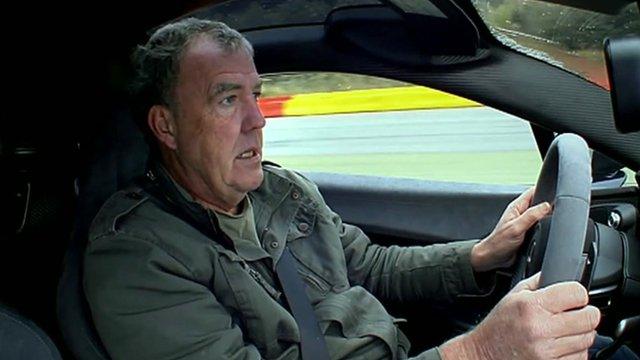Top Gear: How a monster was born
- Published
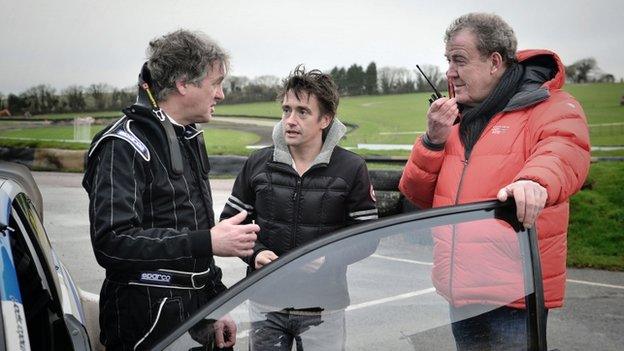
Jeremy Clarkson (right) has helped propel Top Gear to monster proportions
Top Gear presenter Jeremy Clarkson is a controversial figure, but he certainly appears to be popular around the world.
Within hours of his suspension from the motoring show while the BBC looks into allegations that he punched a producer, an online petition to "bring back Clarkson" had gathered more than 350,000 signatures.
But how did Top Gear begin, where is it now, and could the franchise survive without Mr Clarkson should he leave the BBC?
Top Gear: the early years
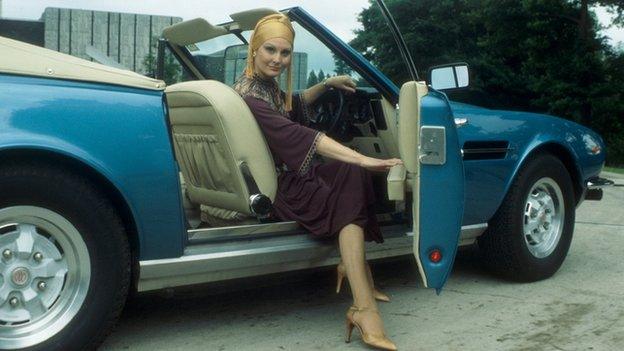
Presenter Angela Rippon joined Top Gear in 1978 as it went national
The monster show that now bestrides the globe actually began in 1977 as a straightforward regional motoring programme produced by BBC Midlands that looked at cars and road safety, external.
Top Gear became a national TV programme in 1978 with presenter Angela Rippon, who was drafted in to broaden its appeal.
In the 1980s presenters including Noel Edmonds, a staple of BBC light entertainment shows for decades, also joined the programme.
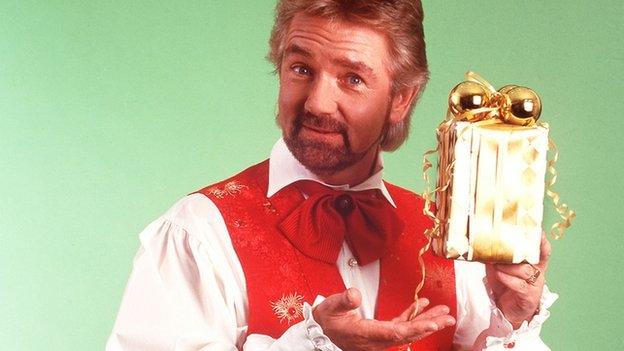
Noel Edmonds was a staple of BBC light entertainment shows for decades
The format of the show remained virtually unchanged until 1988, when Jeremy Clarkson, a columnist at Performance Car magazine, joined.
The show became more edgy, and Mr Clarkson's outspoken, irreverent style helped propel viewing figures, external from several hundred thousand to more than six million.
However, after more than a decade of controversy, Mr Clarkson left Top Gear. His departure from the show in 1999 heralded a slump in viewing figures, and it was put on ice in 2001 after presenter Brendan Coogan left under the cloud of a drink-driving conviction, external.
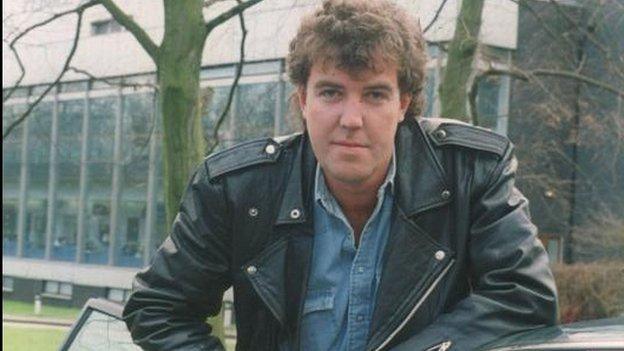
Jeremy Clarkson, presenter of Top Gear, the "BBC Motor Programme", in 1998
Resurrection
What was to become the Top Gear monster was bolted back together in 2002 after all of the Top Gear production team and presenters had jumped ship to Channel 5 to launch a programme called Fifth Gear, external.
Jeremy Clarkson successfully pitched to the BBC with co-producer Andrew Wilman, and helped relaunch the programme that year.
He was joined as a presenter by Richard Hammond, and later by James May.
The programme went from strength to strength after starting to use Dunsfold Aerodrome as a test track, helped by features including the regular destruction of caravans, and a mystery test-driver called "the Stig" - who has since been unmasked twice.
The programme also became known for spectacular stunts including a race to the magnetic North Pole and slots such as the Star in a Reasonably Priced Car.
In 2013 Guinness World Records proclaimed that the show was the most widely watched factual TV programme in the world, external.
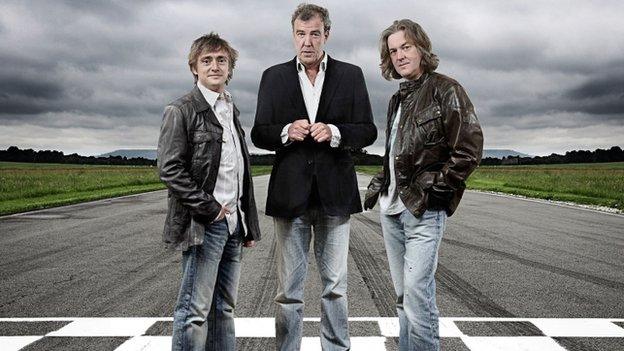
Franchises and spin-offs include Top Gear Australia, India, Malaysia, Netherlands and Russia.
That year its audience covered 212 territories "from Ghana to Guatemala, Moldova to Myanmar", the records organisation said.
Franchises and spin-offs include Top Gear Australia, India, Malaysia, Netherlands and Russia.
Fans can buy DVDs and Blu-Rays, books, T-Shirts, backpacks, assorted gizmos and gifts, compilation CDs, and there's even a Top Gear magazine.
Who makes the loot?
The BBC has traditionally been quite coy about revealing commercial details of its arrangements with Mr Clarkson, but it seems fairly safe to say he is a multi-millionaire.
Mr Clarkson formed a production company called Bedder 6 with Mr Wilman in October 2006 to exploit commercial opportunities from Top Gear, according to Variety magazine, external.
BBC Worldwide, the wholly owned commercial subsidiary of the BBC, paid for a majority holding in the company, with Mr Clarkson taking a cut of the international rights.
BBC Worldwide then went on to buy out Mr Clarkson and Mr Wilman in September 2012, giving Mr Clarkson a windfall of £14m, the Guardian reported, external.
Mr Clarkson then set up a company called Newincco 1189 which turned a £600,000 profit in 2012, the Guardian said, external.
Top Gear stats
350 million
Top Gear's estimated worldwide audience
-
1977 Top Gear began as a local show on BBC Midlands
-
170 plus episodes in its current format (since 2002)
-
3 million YouTube subscribers
-
1.7 million global circulation of Top Gear magazine
It's alive!
Before the latest Top Gear scandal blew up, Mr Clarkson was said to have been on the verge of signing a new BBC deal.
But he has also reportedly been repeatedly approached by rival broadcaster Sky, which is said to want a slice of the juicy Top Gear pie.
So, could the monster that is Top Gear survive without Mr Clarkson?
Some commentators seem to think so. Telegraph columnist Alex Proud told BBC News that despite Mr Clarkson being a "massive earner for the BBC", the broadcaster could also attract new talent.
"Benny Hill was the best-selling British export before him. Remember when Radio 1 was full of 1980s DJs? Radio 1 is healthier than ever. Who's to say Top Gear... might be better in a few years for this change?" said Mr Proud.
He says though, whatever happens, the BBC has a bit of a problem on its hands. The loss of Mr Clarkson would be a blow to the BBC, but he may have run out of second chances.
Former BBC executive Roger Laughton also said the corporation was in a difficult position.
"The BBC has a dilemma. Nobody in the end can ignore the BBC guidelines. That said this is a very popular programme - BBC Two's most popular factual entertainment programme. The BBC would be loath to lose it."
- Published11 March 2015
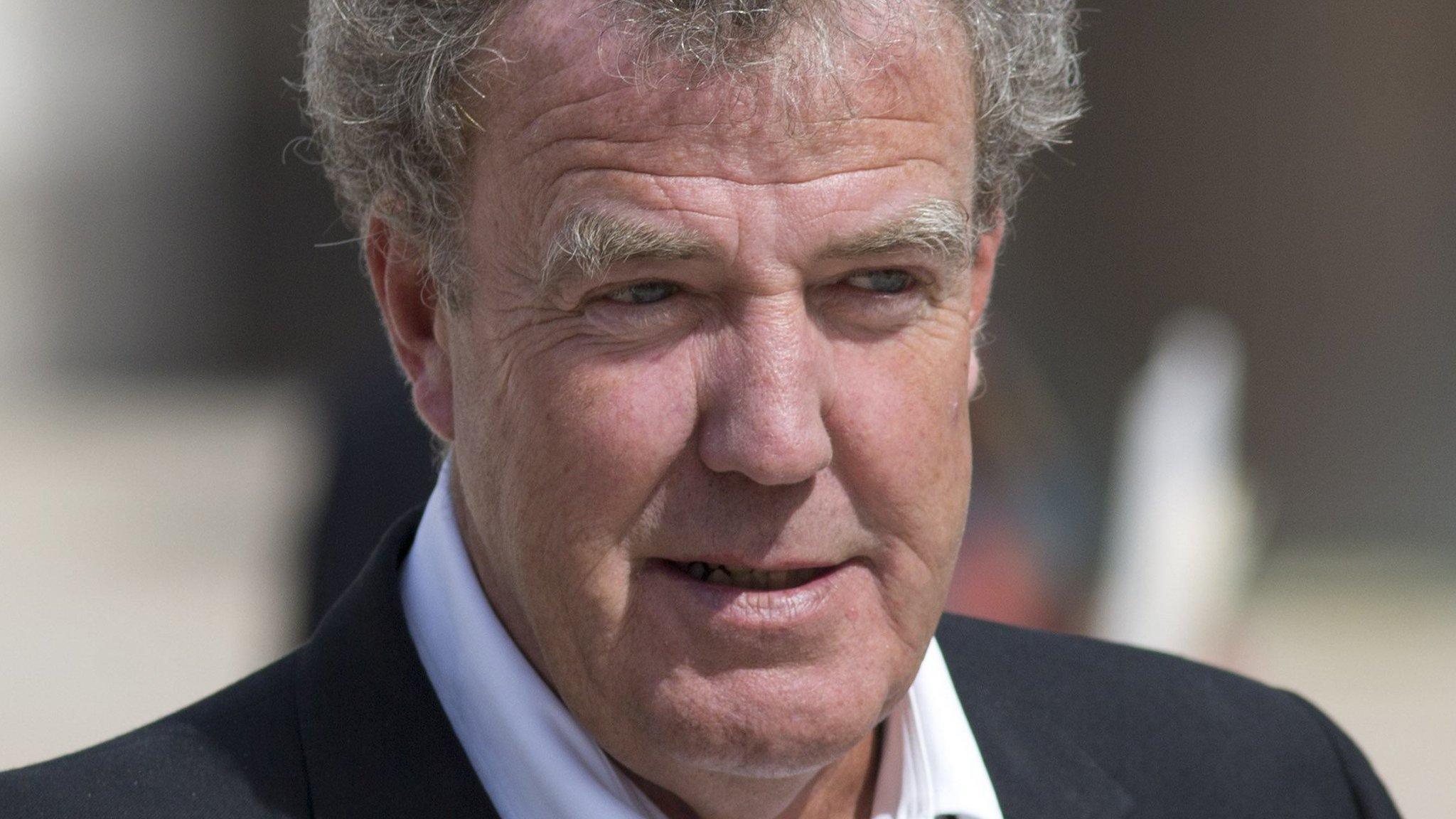
- Published11 March 2015
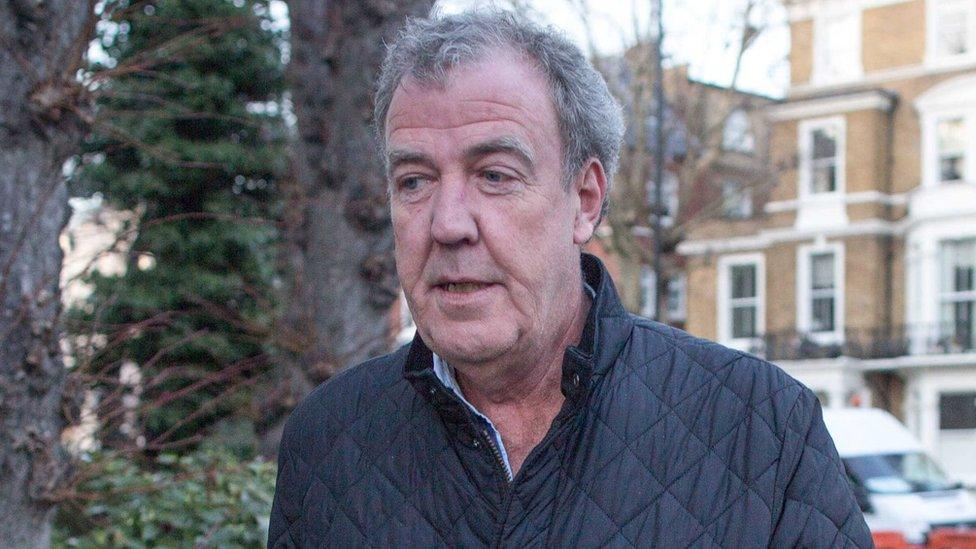
- Published11 March 2015
